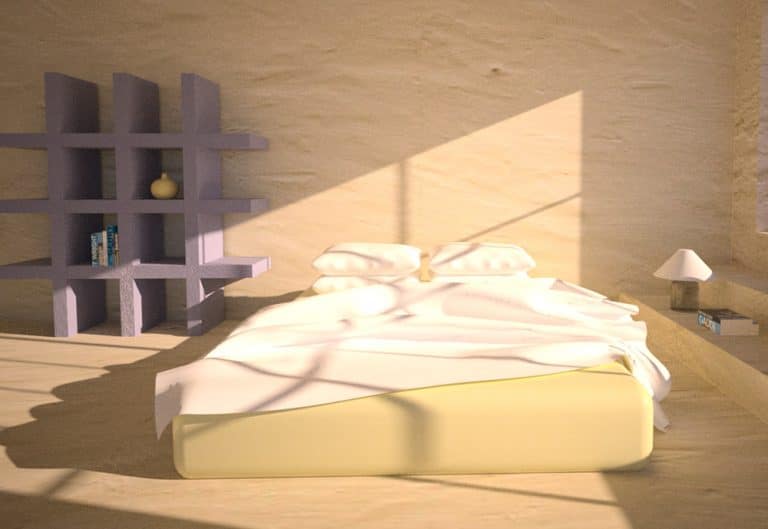Can you feng shui a relationship?
Feng shui is a pseudoscience that was developed in China around 6000 B.C. It is based on the belief that how we arrange our homes, directed by a few principles, allows us to utilise, observe and fuse energy (chi) of different kinds into our daily lives. Our ‘home’ refers to any space we inhabit, which includes ourselves. Could we use the same principles we apply to physical spaces in order to better our external relationships as well? Yes, I’m talking about your dating life as well as your friendships.
We know that what’s going on inside affects our reaction to our environment—in feng shui, the house is viewed as a whole being in which one part is intricately connected to the other. The same theory can be expanded to other aspects of our lives. In The Field, author Lynne Mctaggart reveals that the human mind and body are not separate from their environment, which implies that all matter in the universe is connected on the subatomic level through a constant dance of quantum energy exchange. To put it simply, what you are, even your thoughts, are quite literally what the world around you is too. Beautiful, right?
Respect seems to be at the core of any successful relationship; we should strive to allow another person to be and do as they like as a separate being. But for there to be good energy—good vibes, if you will—there has to be balance on the scale of mutual give and take. Humans are separate beings, like objects in a sense, with their own doors, hideaways, dust and purpose. Like feng shui, we use things like light and darkness, joy or sadness, on a daily basis to navigate the atmospheres we choose to surround ourselves in.
There are five elements that feng shui divides the world into: wood, which symbolises growth and creativity; earth is for stability and balance; metal relates to logic and intelligence; water is linked to wisdom and serenity, and fire to passion and energy.
So how does feng shui relate to romantic love in particular? I was having a conversation with a friend about how we use parts of people to fulfil a whole ideal. Have you ever used a dating app? Been there, done that. You find someone that’s downright perfect, on paper. You wear your good lingerie, or no lingerie—you bring your fire, because you’ve been date shopping for a while and why not, you’re excited. They’re excited too (one would hope). But then, your fingers reach for that app again, and whoops, you’re still shopping. Your perfect date is probably still out shopping as well. Why is that? And, more importantly, what in the world are you two looking for, exactly?
This is when the other four elements come into play. First impressions do fizzle out; fire needs earth to keep it alight. I’m thinking if it’s not a ‘hell yeah’ now, it’s probably a ‘no, thanks’ down the line, but should that be the case? Is the increase in ‘choice’ pushing us towards polyamory? Is it us simply fulfilling a whole ideal, built by parts?
What we tend to look for mostly—maybe I’m just speaking for myself here—is someone to, first of all, allow you to be you, allow you to change who that ‘you’ is, and then love you anyway without too many questions. Nobody wants to be bored, either, but an excess of passion and noise becomes chaos.
Unfortunately in love, we can’t just build a relationship into being. We can’t nudge a chair here, knock a wall down there or push a lamp into a darker corner to create a feeling. A room is much more forgiving than another person when it comes to manipulation. The curated projection of what is right in a physical space is customised only to your preference, it comes from one side only. The furniture doesn’t talk back. But to feng shui with a lover is to, theoretically, dance without bumping into another’s customised preferences.
If we could build a person perfectly suited to us, then we would have done that already, although probably the wrong way. Only you are perfectly suited for you, but we can do our best to bring out the positive energy (chi) from the world around us. That’s the whole point of feng shui—decluttering instead of emotionally consuming and accumulating beyond our needs.
Have a good old feel for what doesn’t feel right, and let go of it. Subatomic energy exchange, remember? It won’t get lost, it’ll just find somewhere else to settle. You could walk through a house blindfolded to see what needs moving, but we have to rely on our intuition. ‘Feng’ means wind, ‘shui’ means water. These two elements flow around the world. In a way, it’s comforting to think that nothing stays still, not even ‘nothing’ stays still—even in the vacuum that’s outside of our world.
There is something called Zero-point-energy, which is the lowest possible energy that a quantum mechanical system might have. The zero point of a vacuum is not zero due to fluctuations in electromagnetic waves, which means energy is still being passed from one thing to another—an atom will never bump into the same one again. If the universe can let go, I’m sure we can too.
Open your doors and windows, let all the waves run through you. Make sure the light gets in. Then, address the elements. What and who allows you to grow, to trust, who makes you want to rip your clothes off, who listens to your silence and your noise? We can apply this to one relationship, or multiple. I may be ripping this apart a little bit, so take from it what you will, and I will too.





